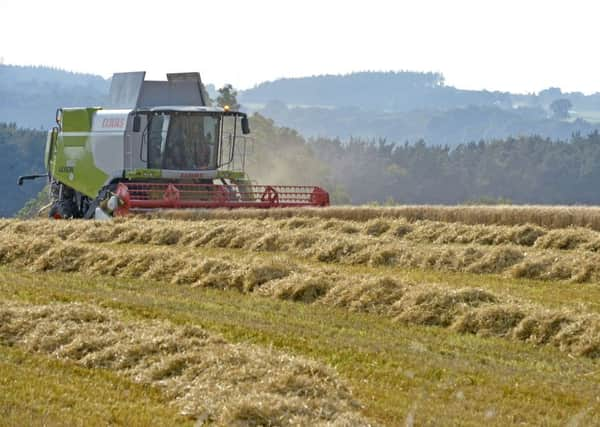Rely on science for new crop rules in clean Brexit break from EU regulations, Whitehall told
This article contains affiliate links. We may earn a small commission on items purchased through this article, but that does not affect our editorial judgement.


Private sector research and development spending in the sector has plummeted over the last 20 years, from about £50m per year in the late-1990s to about £1.25m today, according to a new report by the Agricultural Biotechnology Council.
The council blames the EU’s “mal-administered” crop biotechnology regulatory system for contributing to a “significant” loss of high value-added research scientist jobs.
Advertisement
Hide AdAdvertisement
Hide AdIt says that the EU’s approvals system for crop innovations has seen authorisations take years and scientific opinion frequently ignored from the body specifically established to provide advice to policy makers. This, the council says, has caused business uncertainty, trade disruption and research and development investment to be driven away from the plant breeding sector.
Brexit, however, offers a chance for the Government to establish its own regulatory system for farming and GM crops based on sound science, the Council said.
To date, no commercial GM crops have been planted in the UK and limited GM crop research is being undertaken.
Advertisement
Hide AdAdvertisement
Hide AdGraham Brookes, agricultural economist and author of the report, said: “Brexit provides the UK with the opportunity to re-instate sound science at the heart of regulation of important crop improvement techniques based on plant genetics.
“A sound-science-based regulatory system that moves away from the current mal-administered and inconsistent EU regulatory system would provide a first-class safety assessment system consistent with regulatory systems in the majority of countries around the world.”
The economy and wider society would benefit through better quality products and environmental gains, he said.
Depleted research and development investment has constrained the commercial development of new crop innovations, the council says. For example, if new GM techniques already developed to make potatoes resistant to late blight were made available to UK potato farmers, it could mean higher and better quality yields, less waste and both lower production costs and fungicide use.
Advertisement
Hide AdAdvertisement
Hide AdAt present, this UK-developed breakthrough is only being used commercially in the US.
Mark Buckingham, chairman of the Agricultural Biotechnology Council, said: “A generation of British farmers have operated without technology that is taken for granted around the world while the EU has become known for its political regulatory decisions. Brexit offers the chance to help Britain lead the world in agri-science and ensure the UK enjoys the economic benefits of the sector.”
The Government’s current stance on GM rules after Brexit are that existing regulations will remain in force through the EU Withdrawal Act and that decisions on marketing will be made within the UK rather than at EU level.
It is currently discussing how the rules on GM cultivation should be applied after Brexit with the devolved administrations.
Advertisement
Hide AdAdvertisement
Hide AdA spokesperson for the Department for Environment, Food and Rural Affairs, said: “We have always been clear maintaining safety and public confidence in the food we eat is a high priority.
“As we leave the EU, any future regulation of GMO (genetically modified organisms) products must be based on science and what works for farmers, businesses and consumers – so we can uphold our globally-renowned and excellent food standards.”
Defra said it makes all decisions on GMOs based on a “robust risk assessment” that looks at the best available science.
